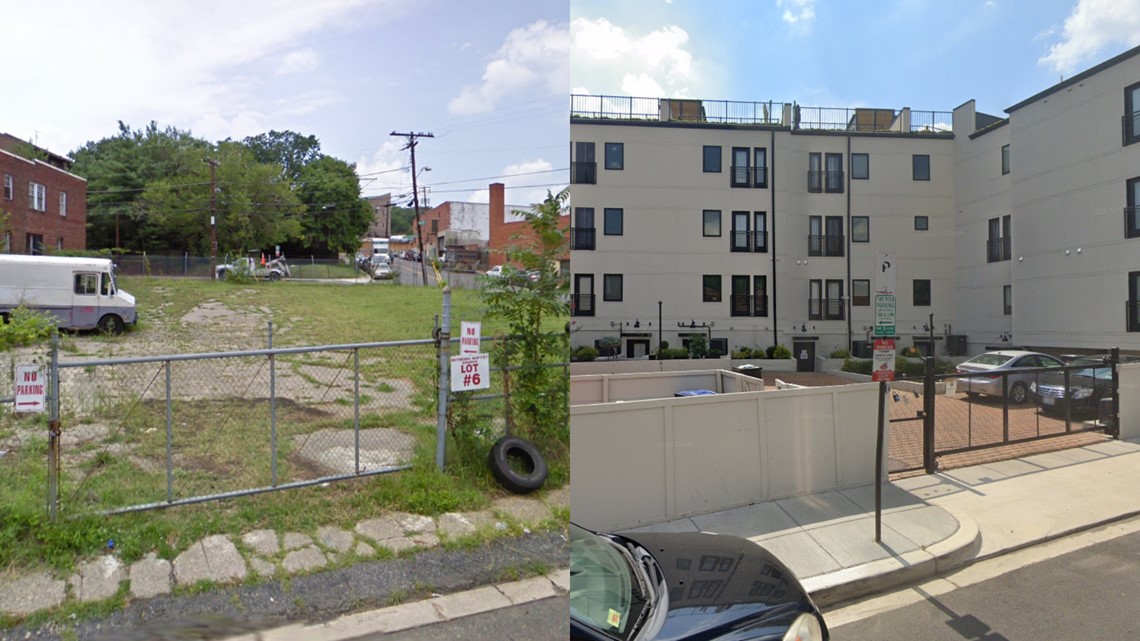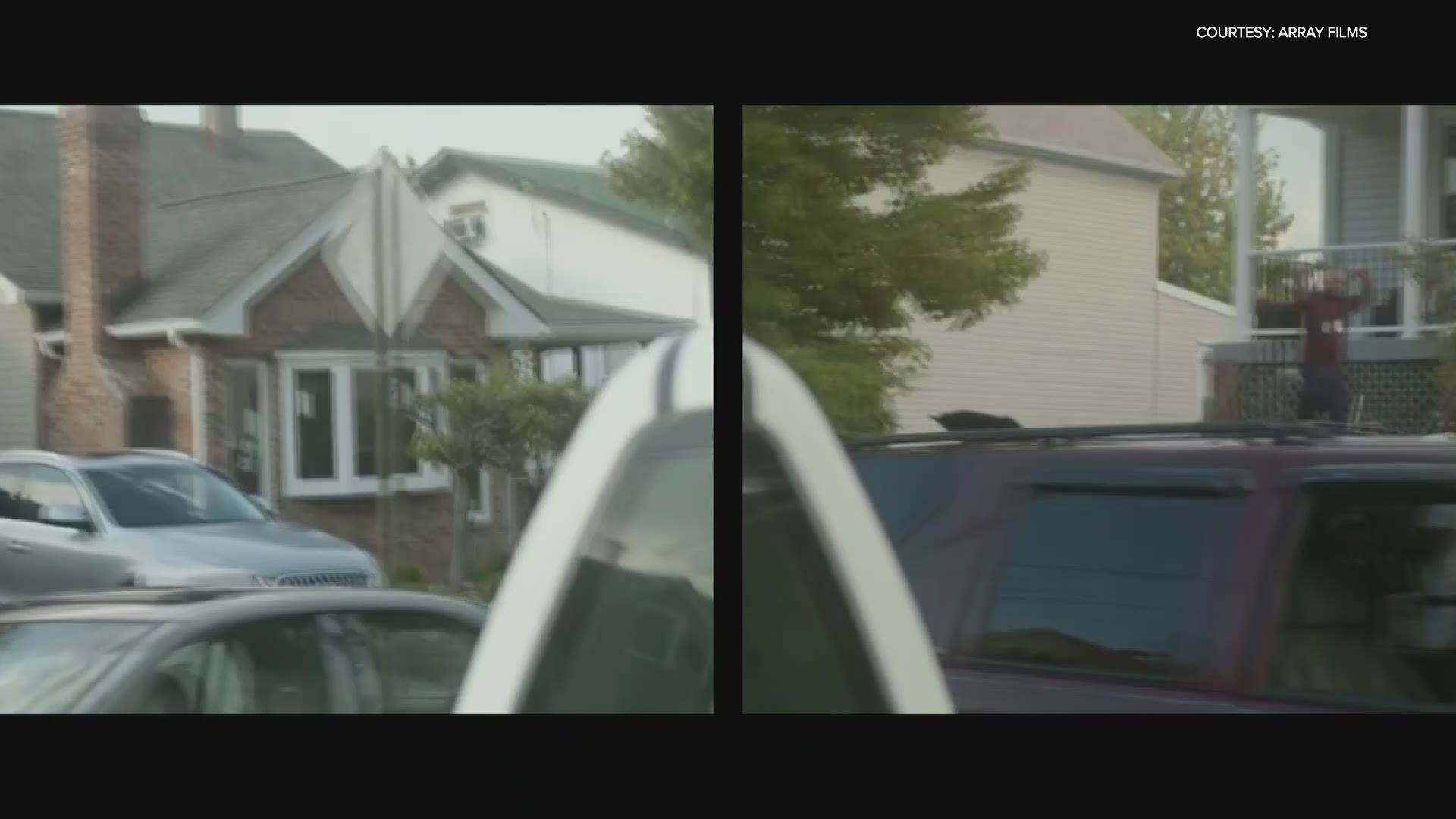WASHINGTON — When D.C. native Andrea Morgan first purchased her home in Ivy City in 2015, the mother of two said she was excited it would provide a fresh start for her family.
“I have two disabled children that rely on government programs, and I needed a house that was accessible,” Morgan said. “I needed adequate space after living in our apartment for the bulk of 16 years.”
Morgan said she decided on purchasing the property to invest in the future of her family by building a stable cycle of generational wealth. Through the Ivy City Special Demonstration Project – a late-2000s initiative to build more housing for low-income families – Morgan was exempt from paying the market rate for her new home. She also qualified for a five-year tax abatement program from the D.C. government.
But despite community initiatives to limit development to affordable housing and keep overall real estate prices low in Ivy City, the city simultaneously granted contracts to private developers who flooded the streets of Ivy City to build property with price tags at around 80% of citywide median household income for a neighborhood making just 43% of median income, according to community activists from the low-income neighborhood advocacy group Empower D.C.
The results successfully increased property value in the neighborhood but left low-income homeowners like Morgan shocked when she was finally tasked with paying a higher property tax that she had envisioned.
“I wasn’t expecting for it to be so high,” she said. “It’s gotten to the point where sometimes I think if I should have just stayed a renter.”
Over the last two decades, property value in Ivy City has increased by more than 150% while property taxes in the neighborhood have increased by more than 303%, as calculated in a statistical analysis by WUSA9. Property taxes rose from a median of about $560 in 2000 to well over $2,200 in 2019, accounting for inflation, according to U.S. Census data.
The spike is not limited to Ivy City: WUSA's analysis found that property taxes in predominantly non-white neighborhoods with residents among the lowest-tax brackets have increased by an average of 3% relative to income since 2000. Meanwhile, residents in the city’s wealthiest neighborhoods have only seen their property taxes increase by around 1% relative to income, and in some cases lowering despite household incomes increasing.
And according to activists at Empower D.C., this discrepancy is part of a larger systematic issue that "unfairly targets" lower income families of color.
How Gentrification Raises Property Taxes in Low-Income Neighborhoods
The story of Ivy City is one all too familiar among historical Black neighborhoods in the nation’s capital, according to Parisa Norouzi, the founder of Empower D.C.
“Just like with other Black neighborhoods, this area faced generations of divestment and environmental injustice followed by, more recently, decades of extreme gentrification that have forced families from their homes,” Norouzi said.
Much of what shaped these Black neighborhoods was the result of racially restrictive covenants throughout the mid-20th century that banned Black people from buying property in White neighborhoods forcing thousands to move into underdeveloped, industrial segments of the city, according to a report by the D.C. Policy Center. With limited access to proper job markets or quality education, residents of these neighborhoods were essentially forced into a perpetual cycle of poverty, according to a report from the Brookings Institute.
These neighborhoods began to change drastically starting in the late 1990s as the city began emerging from a decade-long financial crisis that had seen the city lose more than 60,000 jobs, according to the Policy Center. To jumpstart the economy, the administration of Mayor Anthony Williams sought to attract 100,000 new residents and move them into neighborhoods designated for new housing development, including Ivy City.


Norouzi said these developments did not attempt to solve an already inaccessible housing market in Ivy City.
“There's a myth going around that we need to change the zoning laws in order to build more housing and somehow that, that will address the issue,” she said. “But the reality is if the families cannot afford the housing, then building more housing doesn't benefit them and it doesn’t benefit D.C.”
Between 2000 and 2020, the median household income in Ivy City increased by more than 55%, which Nourouzi said was the result of wealthier, predominantly White residents moving into more expensive housing units. In that same timeframe, property value in the neighborhood soared more than 150%.
The resulting tax increase was inevitable, according to Carl Davis, a researcher at the Institute of Taxation and Economic Policy. Tax assessors do not necessarily consider property owner’s income when evaluating real estate conditions, and the addition of higher-end buildings and increased amenities in the area can sway assessors to increase tax rates throughout gentrified neighborhoods.
“In gentrifying areas, the change we see is a very rapid increase in home values,” Davis said. “That can create serious problems for homeowners and renters when you see property values rise faster than income does.”
Residents in Ivy City had to sacrifice a larger proportion of their income to property taxes: In 2000, it was just 2% of income, according to U.S. Census data. That increased to 4% in 2010 and ultimately to 5% in 2019.
Andrea Morgan’s case was no different from many of her neighbors. Although she was under a tax abatement program, Morgan said she decided to pay her mortgage in full as though she was paying property taxes, instead allocating the difference to pay off her principal. She said that monthly payment totaled $1,015.
When her five-year abatement ended, Morgan said she was assuming she would continue paying that normal mortgage rate under the impression that she would be paying property tax instead of her monthly principal payments. Instead, she said her mortgage rose to $1,250 because of a corresponding tax increase relative to her rising property value.
While the $235 monthly difference was already difficult to pay off pre-pandemic, Morgan said that the financial burden has only been exacerbated in the last year. With her children at home instead of school, she said she has had to budget electricity use and cut her own meals just so that she can pay that tax increase reflected in her mortgage.
“Now instead of just dinner, I’m also having to buy groceries for lunch,” she said. “I don’t have the resources to pay for more groceries, but I don’t want them to miss a meal. So instead I just don’t sit down with them for dinner anymore.”
But this tax phenomenon is not exclusive to Ivy City or areas experiencing rapid development. Low-income neighborhoods face a nationwide problem of assessment regressivity – or tax assessors overvaluing low-income housing by inaccurately valuing amenity attributes-- according to Carl Davis of ITEP.
Census data reveals that this trend is prominent in D.C.: In Fort Stanton in Southeast, property taxes increased by 161% in the last two decades, accounting for inflation. In that same timeframe, household income decreased by around 101%, according to U.S census data. While property tax only accounted for 2% of income in 2000, by 2019, it accounted for 11% of income.
Meanwhile, in Northwest’s Sheridan-Kaloroma neighborhood where median household income was more than $166,000 per year in 2019, property taxes decreased by 28% over the last two decades, accounting for inflation. In 2000, property tax accounted for 7% of income, and this figure decreased to 4% by 2019.
In an email response, D.C.’s Office of Tax and Revenue confirmed that income is not a factor in assessing property value but added that a rising demand for property in the city is a key reason why property values have risen so quickly in the last two decades.
"We are seeing notable increases in demand by individuals and/or small/midsize developers for properties in areas where home values are more affordable," wrote a spokesperson in the response. "These sales and market activities are fueling increases in property values in neighborhoods viewed as more affordable."
How Governments Could Close this Discrepancy
Tax analysts like Davis have said that as income plateaus and property value rises, the one solution that more governments need to instate are tax circuit breakers: essentially offering tax credits to certain households if their property tax accounts for more than a certain percentage of total income.
The city has already implemented certain tax schemes to provide relief for low-income residents like Andrea Morgan, such as a tax credit that caps the city from taxing more than a 10% increase in property’s assessed value each year, and the five-year tax abatement program that Morgan qualified for.
Still, Davis said these policies are not enough to combat a rising trend that will continue to perpetuate socioeconomic inequality among White Americans and Americans of color.
“I think you could lower the affordability threshold is something like 2% for more families, you could expand the pool of families that's eligible for the program, and you could expand the maximum amount of relief that's available,” Davis said.
As someone who has been directly impacted by gentrification and rising property value, Andrea Morgan said that she would appreciate programs that are tailored to helping families like hers whose financial burdens have been made worse by the pandemic, such as temporarily freezing taxes during economic emergencies like those caused by COVID.
"Just as much as [politicians] are out there freezing rent and eviction for those who are delayed or behind in their rent, what happens with us who are not necessarily delayed or behind in the mortgage but still struggling to survive?" she said. "Freeze our tax for now! Or, if we haven't fallen behind on our payments, at least give us some sort of stipend so that we can stay afloat and provide some sort of financial commitment to our economy."

